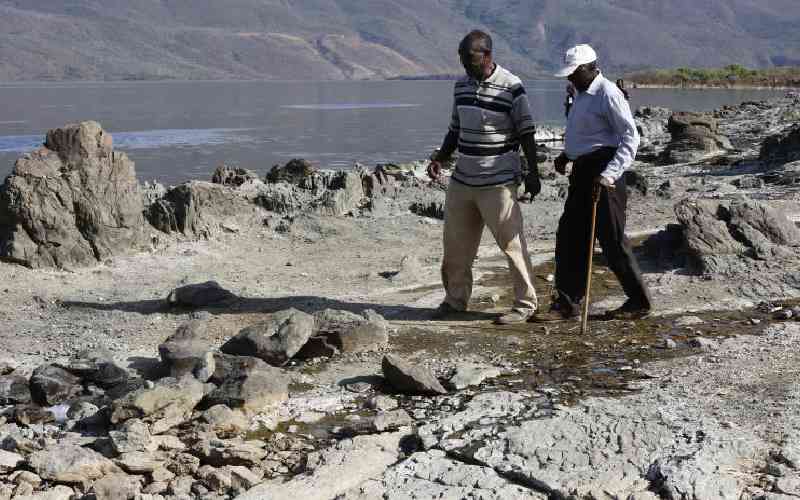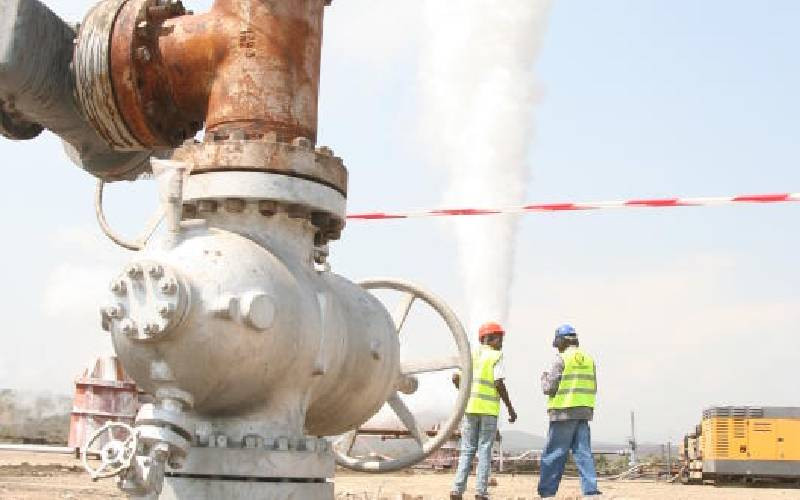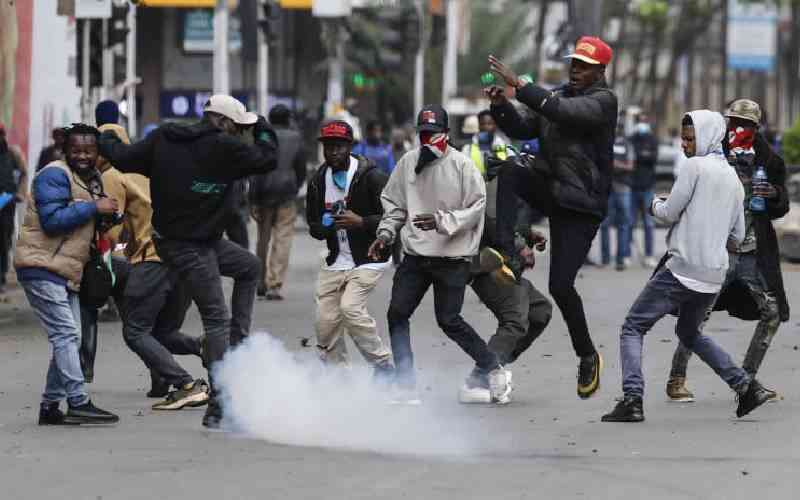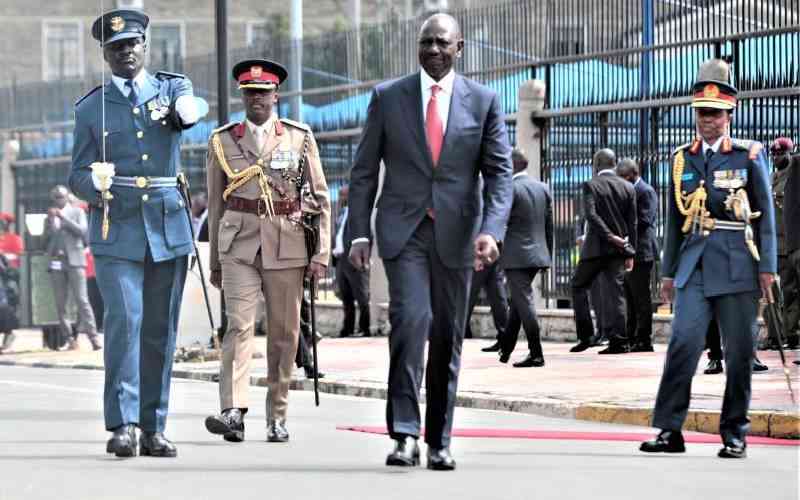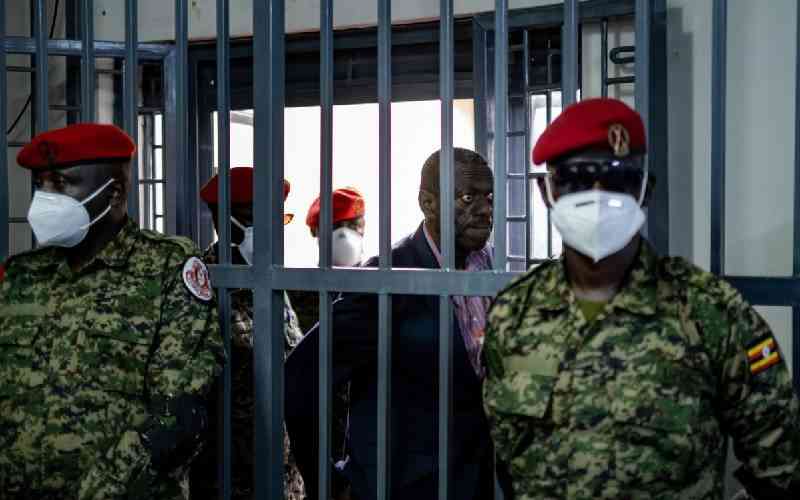By DANN OKOTH
Kenya risks sanctions from the Africa Union should it fail to implement an international court verdict on the rights of the Endorois. This would contravene the African Charter, to which it is a signatory.
And coming at a time the country is implementing the new Constitution, the Endorois’ legal-triumph-turned fiasco could dent the country’s image in the eyes of the international community.
The Endorois is an indigenous community of 60,000 people who lived in the Lake Bogoria area. They practiced a way of life linked to their ancestral land prior to their dispossession through the creation of the Lake Hannington Game Reserve in 1973, and gazetting of the Lake Bogoria Game Reserve in 1978 by the Government.
But in a landmark decision in February last year, the African Union adopted the decision by the African Commission on Human and Peoples’ Rights, which found the Government guilty of violating rights of the Endorois community by evicting them from their lands to make way for a wildlife reserve.
The commission ruled, in May 2009, that the Endorois’ eviction from their traditional land for tourism development violated their human rights. The decision was historic since it recognised, for the first time in Africa, indigenous peoples’ rights over traditional land.
Government at fault
The community had gone to court to contest alleged violations resulting from their displacement from the ancestral land, failure to adequately compensate them for loss of property, the disruption of the community’s pastoral enterprise, and violations of their right to practice their religion and culture.
The community had earlier moved to the High Court in Kenya to seek redress but their case was thrown out on grounds they had received sufficient compensation from the Government.
But the community maintains that only 170 of 400 families forced to leave the Endorois traditional land received monetary assistance.
In 1986, 170 families evicted in late 1973 from their homes within Lake Bogoria Game Reserve received Sh3, 150 each – at the time this was equivalent to £30 – about Sh 3,600
In an affidavit filed before the commission on its behalf by Centre for Minority Rights Development and Minority Rights Group International, the community said the Government in violation of the African Charter on Human and People’s Rights, the Constitution of Kenya, and international law, forcibly removed them from their ancestral lands around Lake Bogoria in Baringo, Koibatek, Nakuru and Laikipia districts, without prior consultation and adequate compensation.
But the court found the Government in violation of Articles 1,8,14, 17, 21 and 22 of the African Charter. The Charter says in part that all peoples shall have the right to their economic, social and cultural development with due regard to their freedom and identity and in the equal enjoyment of the common heritage of mankind. The court ordered the Government to, among other things, recognise rights of ownership to the Endorois and return the community’s ancestral land, ensure their unrestricted access to Lake Bogoria and surrounding sites for religious and cultural rites and grazing their cattle and compensation the community adequately for losses suffered.
The court also wants the Government to pay royalties to the Endorois from existing economic activities, ensure they benefit from employment possibilities within the reserve and grant registration to the Endorois Welfare Committee.
It said the Government should engage in dialogue with the complainants and report implementation progress within three months from the date of notice.
Stay informed. Subscribe to our newsletter
Lack of commitment
However, more than a year since the ruling, the Government is yet to take any steps in implementing the court decision, leaving the community frustrated.
"We thought we could access quick justice through the African commission. That now seems far-fetched," said Kibet Chebinbin, 75, in Kandai village in Baringo County.
The Endorois are quickly being assimilated into larger tribes and fear is rife it could soon lose its identity. Indeed the Endorois have variously been classified as a sub-tribe of the Tugen tribe of the Kalenjin.
"Being allowed to hold on to our land is a prerequisite to preserving our identity. At this rate, we might not hang on for longer," says youth leader Nelson Kipchumba Kibor.
Anxiety is exacerbated by unwillingness by the State to implement the court decision.
A report put together last month by experts from Cemiride, Institute for Law and Environmental Governance (ILEG), Kenya National Commission on Human Rights, Kenya Land Alliance (KLA) and Katiba Institute says while it is alleged Kenya has committed itself to implement the Endorois decision and within the context of Universal Periodic Reporting of the UN Human Rights Council, the State has not taken tangible actions in pursuit of these commitments.
"Recent discussions before Parliament on the extent to which the Government is pursuing implementation of the Endorois decision goes to demonstrate the lack of coordinated action on the part of the State," says Adenda Lumumba of KLA, who helped compile the report.
"While the Ministry of Lands reported it was yet to receive a sealed copy of the verdict to allow it take action ministries of Foreign Affairs and that of Justice failed to confirm before Parliament they had received formal communication on the Endorois decision," he adds.
The State Law Office has also not advised relevant arms of Government or the Cabinet to facilitate enforcement of the decision.
The Government, the report says, also continues to operate as if the Endorois decision does not exist. For example, Kenya Wildlife Service has recently sought the declaration of Lake Bogoria as a Unesco world heritage site without consulting the Endorois.
However, KWS spokesperson Paul Udoto said Lake Bogoria was a national reserve, adding all national reserves were held in trust for the local communities by county councils.
Equally, Kenya’s Geothermal Development Company has invited bids for investment in electricity generating plants with capacity of 800 megawatts using underground steam in the Bogoria-Silali block without the consent of the community. Dissenting voices challenging the validity of Endorois Welfare Council as the key-negotiating group, have also featured, further complicating the situation.
"Given that the decision has negative effect on powerful political and economic interests in Baringo, the campaign for implementation has received limited political support from politicians," says Maurice Odhiambo Makoloo, who is also a director at ILEG. Instead, he observes, neighbouring minority communities, notably the Ilchamus, have been led to believe the implementation of the Endorois decision represents a threat to their access to common grazing grounds.
Repercussions
But what recourse does the community have if the Government failed to respect the ruling?
James Mwenda of KNHCR says Kenya is a party to the African Charter adding the judgement is binding.
"Should Kenya fail to implement the decision then the consequences would be a sanction from the African Commission as may be stipulated in its procedures," he says.
The community, he says, may also appeal to the African Commission to compel the Government to implement the decision.
"The stakeholders are looking at the possibility of approaching the local courts to enforce the ruling if the Government is reluctant to implement it," he says.
 The Standard Group Plc is a
multi-media organization with investments in media platforms spanning newspaper
print operations, television, radio broadcasting, digital and online services. The
Standard Group is recognized as a leading multi-media house in Kenya with a key
influence in matters of national and international interest.
The Standard Group Plc is a
multi-media organization with investments in media platforms spanning newspaper
print operations, television, radio broadcasting, digital and online services. The
Standard Group is recognized as a leading multi-media house in Kenya with a key
influence in matters of national and international interest.
 The Standard Group Plc is a
multi-media organization with investments in media platforms spanning newspaper
print operations, television, radio broadcasting, digital and online services. The
Standard Group is recognized as a leading multi-media house in Kenya with a key
influence in matters of national and international interest.
The Standard Group Plc is a
multi-media organization with investments in media platforms spanning newspaper
print operations, television, radio broadcasting, digital and online services. The
Standard Group is recognized as a leading multi-media house in Kenya with a key
influence in matters of national and international interest.


